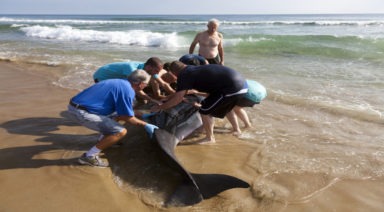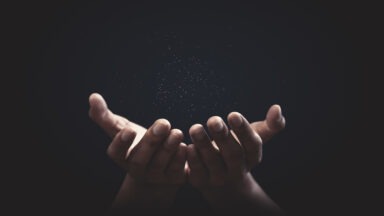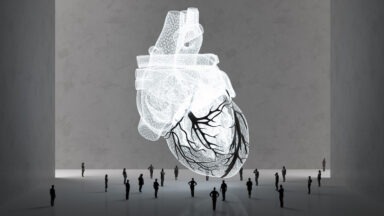15 Ways to Detox Plastic from Your Life

In this day and age, we’re surrounded by plastic. It’s nearly impossible to live without it; our food and other consumables are packed in plastic, many products are made of plastic, we use plastic cups, cutlery and plates for “convenience.” While many food products tout themselves as organic, they still have plastic packaging. Some plastic is obvious, other plastic is disguised; for example, we have micro-plastics in our personal care products, like exfoliating scrubs or tooth paste, which end up in the rivers and oceans, as sewage treatment facilities are not designed to filter micro-plastic beads.
Why should we start to de-plasticize our lives? Plastic lasts nearly forever and only a tiny little part gets recycled. Animals and sea life get entangled in plastic bags. Its additives mimic hormones like phthalates and BPA, both of which are well-known to cause serious health problems, like infertility, cancer and brain damage.
It is time to take action and decrease our plastic consumption. Even the small things count! Ready to decrease your plastic footprint? Here are 15 ways you can reduce your daily use of plastic:
Shopping? Plan ahead.
Take reusable bags to the supermarket and other shops (I always have some bags in the car) or use cardboard boxes for your shopping. Forget your bags? Think twice about using the store’s one-use plastic bags. Opt for paper instead, and be sure to recycle it.
Cookware & Housekeeping
Use wooden spoons and other kitchen gadgets. Clean your home with wooden brushes.
Skip the Straw
Take you coffee mug with you to the coffee shop, and do not use straws.
Watering Plants
A metal watering is so much more attractive and decorative than the ones made of plastic.
Eat with Your Hands!
Prepare your party with finger food and say no to plastic plates, cutlery and cups. If you need cutlery, buy wooden cutlery you can personalize and decorate with masking tape.
Wear All-Natural
Buy clothes made of natural fibers (preferably organic), like cotton, wool, silk and hemp.
Buy in Bulk
Buy bulk and try to avoid individually wrapped products and snacks.
Baby Toys
Wooden toys are much more attractive than plastic toys and teething babies will not ingest all the unhealthy ingredients.
Drink It Up
Use glass or stainless steel bottles and drink filtered tap water, avoid beverages in PET bottles.
Mind the Produce
Forego the plastic produce bags and purchase fruit and vegetables in cardboard boxes. Need to weigh them individually? Use paper bags.
Refill It!
Some stores offer refills on products like detergents and household cleaners. Even better, use homemade household cleaners, like vinegar, baking soda and lemon.
Haircare
Use a comb made of horn or wood.
Skincare
Check the ingredients of your personal care products and avoid micro-plastics in scrubs, tooth paste and other cosmetics.
Make-Your-Own
Make your own yogurt and store it in glass jars.
Mindful Snacking
Need a nibble? Take your snacks in a metal or wooden lunch box.
BONUS FACT
Did you know that Bisphenol A and phthalates are obesogens, hormone disruptors that make you and the generations to come fat? Another well-know obesogen is nicotine. By detoxing your body, you’re helping to detox the environment!
It's Time to Ask Whether We're Buying Ethically Mined Crystals

Crystals have become a hot commodity, as an increasing number of people are realizing their multi-faceted healing benefits. This has come to include celebrities, those trying to capitalize off their demand, and the average Joe. But when a natural resource becomes so valued, it’s probably time to start asking whether we’re buying ethically mined crystals or conflict stones.
Buyers and sellers of gems and minerals converge annually in Tucson, Ariz. for arguably the largest convention of its kind. There, minerals are brought in from across the globe, sold to private collectors, or shop owners around the country. Attendees find large specimens, themed displays, and some of the most beautiful examples of just about every gem and mineral known to man.
But where do they all come from and how do they get there? That was a question The New Republic recently asked, wondering whether the acquisition of healing crystals should be viewed through the same lens as conflict diamonds.





































